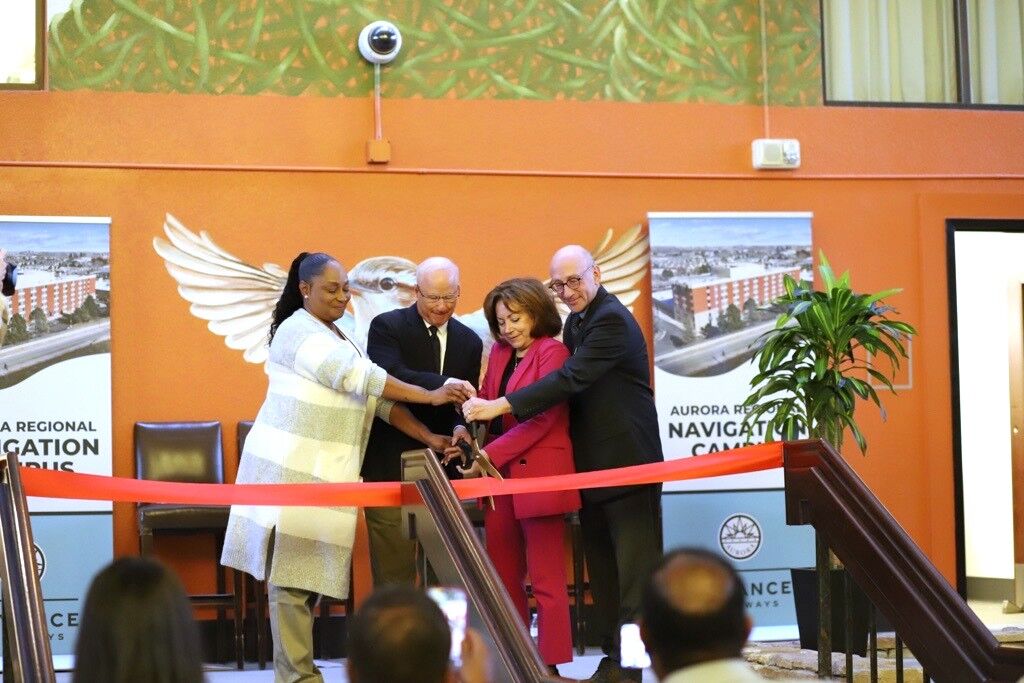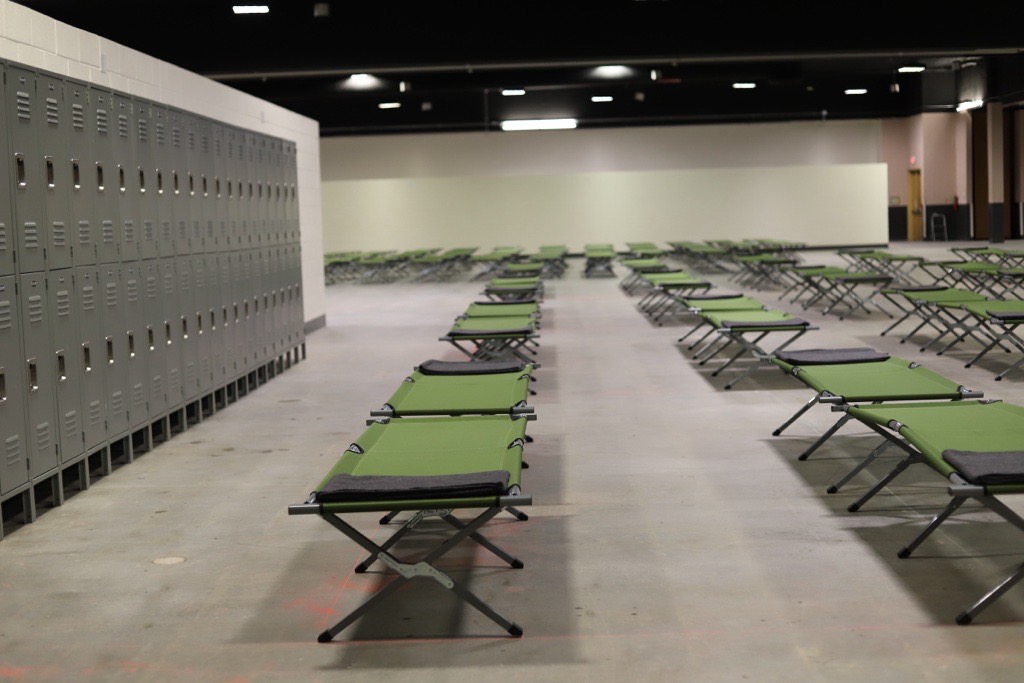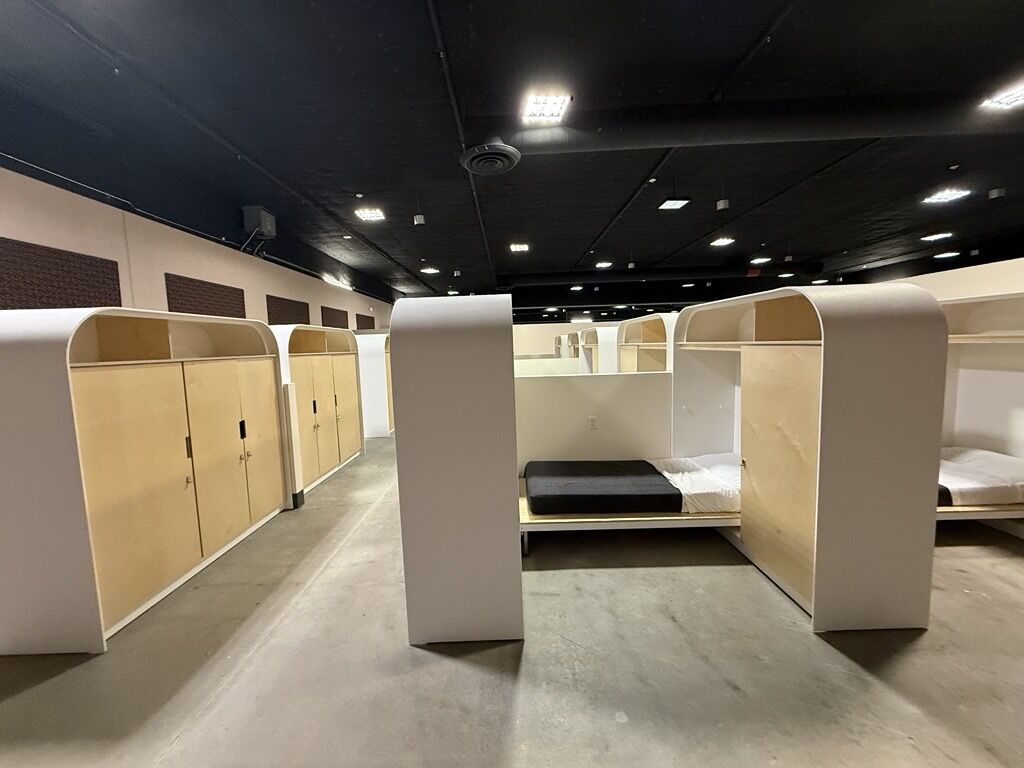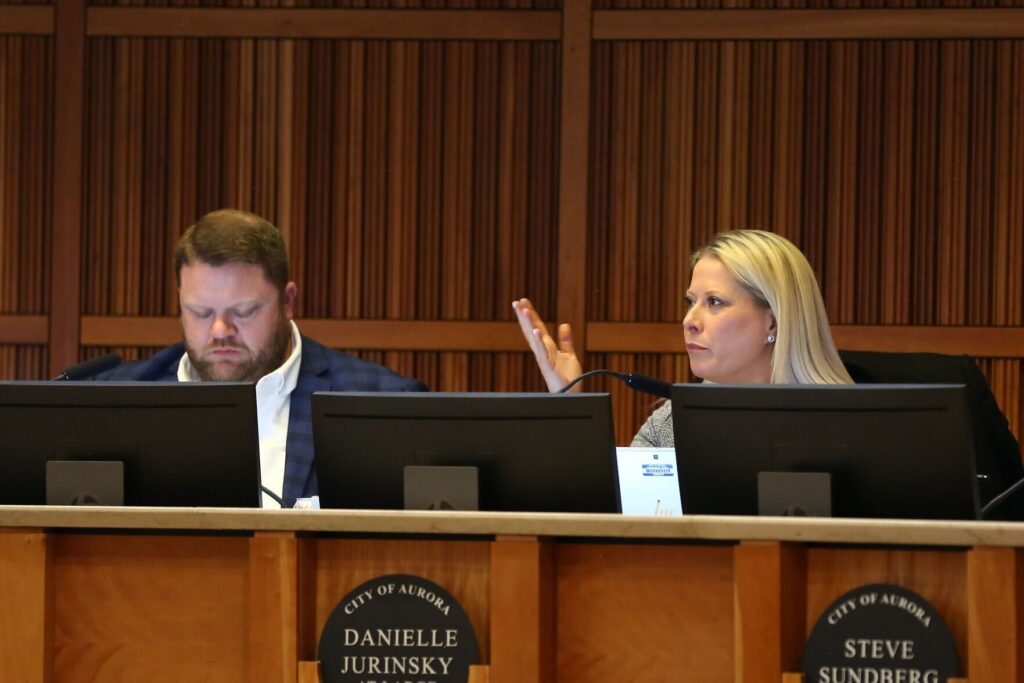Aurora celebrates opening of homeless navigation campus

Aurora officials celebrated the opening of the city’s highly anticipated Regional Navigation Campus on Thursday, cutting the ribbon on the former hotel that will act as a “one-stop-shop” for homeless services and shelter starting in two weeks.
The navigation campus — formerly a Crowne Plaza hotel — at 15500 E. 40th Ave., has been in the works for more than a year after the city purchased the building in May 2024 for $26.5 million.
The 600-person facility will open to the public Nov. 17, when the operator Advance Pathways will shuttle homeless people over from the Aurora Day Resource Center as it shuts down.
The facility has come a long way from being a hotel last year, Mayor Mike Coffman said at the ribbon-cutting ceremony Thursday, adding that the facility will act “not as a handout, but as a hand up.”
His team chose Advance Pathways as the operator in a competitive bid process because of the organization’s “holistic” approach to homelessness, he said.
“That is what this facility will embody,” Coffman said. “A people-focused, progress-driven approach to homelessness that empowers and prepares people to come through these doors to improve their circumstances.”

Over the past year, Aurora City Council members have moved forward with what the mayor has called a “tough love” approach to homelessness, enacting a camping ban, alongside starting a court system to address low-level offenses by homeless people.
The campus is the final puzzle piece in that approach, Coffman told The Denver Gazette previously, offering a place where people can access all of the services they need in one building while being incentivized to work toward self-sufficiency.
The campus has three tiers that officials are calling “compassion,” “courage” and “commitment.”
Tier One, “compassion,” is a low-barrier emergency shelter for those in need of a place to sleep on any given night. There are no sobriety, work or other requirements for people who want to sleep on one of the 285 cots Advance provides in large rooms on the first floor.

Tier Two, “courage,” is for people working with case managers and pursuing goals to get them back on their feet, Advance officials said. It is named as such because it takes courage to face challenges holding people back from progress, Advance CEO Jim Goebelbecker said.
In Tier Two, there are designated rooms set aside with 114 individual pod-style living accommodations. The pods are more private than the cots in tier one and include a bed and private storage space. The second tier serves as a “bridge between emergency shelter and fully independent living,” officials said.
Tier Three, “commitment,” is for those who have “committed” to long-term independent living, Goebelbecker said. People can move up to tier three when they are employed or have taken the next big step, but may still need case work and services and aren’t yet ready to move out of the center.
Accommodations for people in tier three include 220 hotel-style rooms with either one or two beds and a bathroom.
Case management, employment assistance and a variety of other services are also onsite, along with a place where pets can be kenneled at no cost to the owner and a vet will come twice a month, a gym with workout equipment and a full kitchen and cafeteria.
The facility also has gathering spaces, including a large community room where people will connect with staff, a navigation room where the city’s 22 partner organizations will work with people, and an outdoor space within the fenced boundary of the campus for people to safely be outside.

Services also include showers, phone charging lockers, a dental bus that comes every two weeks, transportation services to help people get to and from work and appointments, and a Department of Motor Vehicles bus that will help people get documents.
The city’s Housing, Employment, Addiction, Recovery and Teamwork (HEART) Court, will also operate out of the navigation campus, staff said.
The idea behind the court system is to give low-level offenders the option to either go to probation with court-ordered requirements to participate in homeless services, such as addiction prevention and mental health treatment, or go to jail.
While there is not a sobriety requirement to enter the low-barrier shelter area, those entering are subject to search and must pass through a metal detector. No weapons, drugs or alcohol are allowed inside the building, officials said.
People found breaking the rules inside will be removed, but are allowed to come back, Goebelbecker said.
“At Advance, what makes us different is we believe in earning your way forward,” Goebelbecker said. “We do that with respect to human dignity, regardless of your background, and creating opportunities for the unhoused to be able to help themselves.”
The Homeless Navigation Campus is the final step in Coffman and the city’s “tough love” approach to homelessness, which combines a camping ban with the HEART court and the “one-stop shop” for services and shelter.
On Nov. 17, the Aurora Day Resource Center will close down and shuttle people to the Homeless Navigation Campus, marking its official open to the public.













